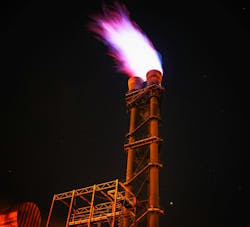Sixteen-year-old climate law not having intended impact on decarbonizing federal buildings
Sixteen years out from a 2007 law that aimed to end the use of fossil fuels in federal buildings, gas heat is still being installed within the federal sphere.
The intent of the law was to phase out fossil fuel-generated energy consumption by 2030. The slow implementation of this carbon-free policy demonstrates how difficult it can be to achieve environmental targets set forth in well-intended, ambitious legislation.
Pushback from the fossil fuel industry has contributed to a slower conversion to fossil fuel-free buildings than was envisioned when the law was signed, says an NPR report. It is a warning to the Biden administration that sweeping laws such as the Inflation Reduction Act and subsequent dispersion of money do not guarantee that climate goals will be achieved, the report asserts.
The Energy Department was charged with developing a rule to implement the fossil-free policy within a year of the law’s enactment. But that never happened, at least partially the result of gas industry pushback, and federal properties continue to opt for natural gas as a heat source. The lesson is that crafting and passing complex climate legislation is one thing, but achieving results in the field is quite another.
